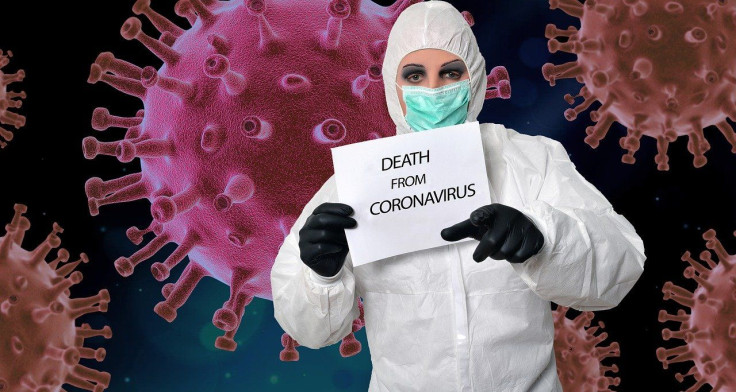Coronavirus Model Shows Decreasing Deaths If More People Wear Face Coverings
KEY POINTS
- A model projected lesser coronavirus-related deaths if people wear face masks every time
- 34,000 lives could be saved by early November, it predicted
- This could be achieved if 95% of people wear face masks when they step out of their homes
A computer model predicts lower coronavirus fatalities if everyone wears a mask while stepping out.
If virtually everyone in America wears face masks when venturing out into the public, it will save almost 34,000 lives by early November. This is what the model run by the University of Washington's Institute for Health Metrics and Evaluation (IHME) showed.
The model projects almost 220,000 deaths in the United States by early November, according to U.S. News and World Report. This is lower by almost 5,000 from a previous projection made by the model a week ago.
Researchers attributed the decline to an increase in mandatory mask requirements in several states and cities, as well as more people wearing face coverings and observing social distancing even without mandates. The model also shows there is a need to do more regarding the issue of masks. According to IHME, the projection of saving around 34,000 lives by early November can be reached only if 95% of people wear face coverings when they step out of their homes.

So far in the U.S., COVID-19 has claimed more than 143,000 lives. If the projections of the model play out, it would mean over 77,000 more people could die from the bug in the next couple of months.
Recently, California surpassed New York as the state with the most number of coronavirus cases. IHME's model predicts that by November, the state may see more than 19,500 deaths. Data from the Johns Hopkins University show the Golden State currently has 8,468 coronavirus-related deaths.
The model also made some projections for the state of Florida, showing more than 18,000 fatalities in the same timeframe. State officials reported Wednesday, July 22, more than 1,000 coronavirus-related deaths in one day.
In an interview with CBS-affiliated TV station WTSP in late June, Dr. Jay Wolfson, a University of South Florida professor in public health, said there is "one big IF" as to the assumptions made by the model. "The range here is pretty wide for Florida and it makes an assumption that's significant," Dr. Wolfson said. He then compared the projections to spaghetti models everyone relied on during the hurricane season.
He said that just as no one controls where the hurricane is going to turn, authorities have also very little control over who is going to wear a face covering. Dr. Wolfson further said it is very difficult for the government to mandate the wearing of masks in the US. "This is not North Korea, South Korea, Russia, China, or even Japan, where authoritarian cultures make it easier for people to follow rules, we're not very good at that," he explained.
© Copyright IBTimes 2024. All rights reserved.





















